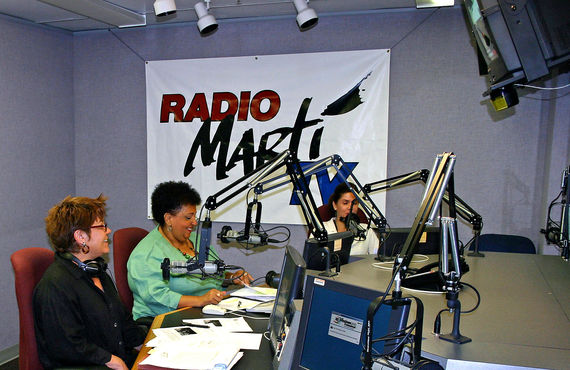A key reason for President Obama's success in reaching an accord with Cuba where his ten predecessors failed can be summed up in a single word: respect. Negotiators Ben Rhodes and Ricardo Zuniga understood from the beginning that it was important to treat their Cuban counterparts with respect, even in the midst of sharp disagreement. "From the Cuban side, being treated respectfully, as an equal, was very important," explained a U.S. official close to the talks.
President Obama's December 17 announcement manifested that same attitude of respect for Cuba's status as an equal, sovereign nation. In the diplomatic discussions that have followed, U.S. officials from the president on down to Assistant Secretary of State Roberta S. Jacobson have continued to engage the Cubans with respect, even when discussing tough issues like human rights.
Being treated with dignity and respect is especially important to Cuba, since the United States for so long treated the island as a protectorate. The last U.S. Ambassador during the Batista dictatorship in the 1950s, Earl E. T. Smith, famously said that the U.S. ambassador in Havana was "the second most important man in Cuba; sometimes even more important than the president." Cubans have not forgotten that arrogance.
From the first tentative attempts at dialogue during the Kennedy administration to the secret talks that led to the breakthrough in 2014, Fidel and Raúl Castro's position has been consistent: Cuba has been open to a diplomatic dialogue so long as talks are conducted on the basis of "equality and mutual respect."
During George W. Bush's administration, when Washington was committed to a policy of aggressive regime change, U.S. officials went out of their way to insult Cuban leaders, referring to Raúl as "Fidel's little brother" and "Fidel lite."
Apparently, the bureaucrats at TV and Radio Martí didn't get the memo that U.S. policy has changed. As reported by Tracey Eaton, they are proposing to create a "satirical...comedy sketch show" to "parody public figures, politicians, government officials, entertainers, as well as recognizable members of Cuban civil society groups." Ten shows, each thirty minutes long, would be broadcast into Cuba by TV and Radio Martí, and distributed clandestinely on DVDs and flash drives.
So while U.S. diplomats are negotiating with their Cuban counterparts on issues like environmental protection and counter-narcotics cooperation, trying to build confidence in order to tackle sensitive subjects like property claims and the repatriation of fugitives, the Office of Cuban Broadcasting is preparing to insult the Cuban officials with whom we are trying to reach agreement.
This is so obviously counter-productive that you have to wonder if it isn't an intentional attempt to sabotage the president's policy by bureaucrats whose programs--and jobs-- depend on perpetual hostility between the United States and Cuba.
Nor would it be the first time that ideologues at the Office of Cuba Broadcasting tried to undermine U.S. policy. When President Bill Clinton signed migration agreements with Cuba and then expanded people-to-people educational exchanges, Radio Martí was a persistent critic of even this limited policy of engagement. A 1995 investigation by the U.S. Information Agency (USIA) Inspector General found serious breaches of basic journalistic practices, including the denigration of views other than those of Miami hardliners, and repeated misrepresentations of U.S. policy so severe they sparked complaints from several U.S. government agencies and officials.
Enough already. Radio and TV Martí were bad ideas to begin with. They have never had a significant audience in Cuba (TV Martí has been referred to on the island as "la TV que no se ve"--No See TV). Based in Miami, the two stations are captives of the exile community's most recalcitrant faction and don't even reflect Cuban American opinion any longer, let alone U.S. policy. Begun by Ronald Reagan and George H. W. Bush, expanded by George W. Bush, Radio and TV Martí are vestiges the policy of regime change that President Obama has rejected as a failure. Like that policy, the stations are "way past their expiration date." It's time they signed off for good.
William M. LeoGrande is Professor of Government in the School of Public Affairs at American University and coauthor with Peter Kornbluh of Back Channel to Cuba: The Hidden History of Negotiations between Washington and Havana, a new, updated edition of which is forthcoming in October from the University of North Carolina Press.
